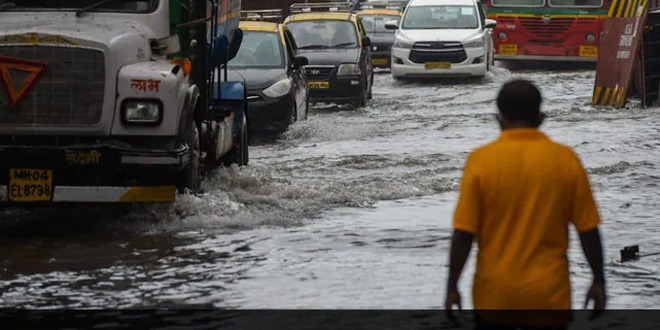Climate Events and An Umbrella for Urban Health
Context:
Amidst the heavy rain and destruction, a cascade of concerns emerges. The spotlight falls not only on the massive damage but also on the complex intricacies intertwined within. From the birth of cyclonic giants like Biparjoy in the Arabian Sea to the floods besieging the northeastern stronghold of Assam, and the horrific rain’s havoc in northern regions.
Relevance:
GS – 01 (Physical Geography)
GS – 03 (Disaster Management)
Prelims:
- Cyclone
- Types of Rainfall
Mains Questions:
- Elaborate on the necessity of a comprehensive health system’s resilience against the backdrop of escalating climate uncertainties, drawing insights from the COVID-19 pandemic’s impact on urban health governance and coordination. (250 words)
Dimensions of the Article:
- Rain’s Impact and Disease Challenges
- The Challenge of Disease Control Amidst Chaos
- Enhancing Urban Health Resilience
- Coordinated Efforts: From Pandemic to Climate Response
Rain’s Impact and Disease Challenges:
- Urban Vulnerability:
In the array of suffering caused by extreme climate events, the urban population finds itself in a precarious position. Especially, the intricate urban settlements—slums and resettlement areas—are the ones most affected. Within these urban mazes, where poverty and informal labor intertwine, resilience is elusive.
- The Disease Patterns:
Amidst this chaotic landscape, a recent study sheds light on the perplexing connection between urban life, socio-economic difficulties, and the menacing malaria issue. While vulnerability affects all, urban households stand out, having a higher chance of falling victim to malaria. Moreover, specific regions with high vulnerability to climatic changes emerge as prime candidates for malaria outbreaks.
The Challenge of Disease Control Amidst Chaos
- Monitoring Amid Disorder:
As the rain-soaked regions begin their recovery, another issue arises – the spread of diseases. The officials tasked with managing water and vector-borne diseases are facing a tough challenge. The seasonal cycle of diseases now faces an additional layer of complexity; the situation is further complicated by climatic changes. In this intricate dance, coordination becomes crucial, with multiple states sharing the stage, necessitating synchronized efforts despite the uncertainties.
Enhancing Urban Health Resilience:
- Building Strong Health Systems: Beyond Rehabilitation:
In the aftermath of climate-related upheavals, a pressing issue emerges: the need to strengthen urban health systems. As the focus shifts from disaster to recovery, urban health resilience takes center stage. This concept thrives on preparedness, agility, and adaptability—traits necessary to counteract the unpredictable effects of climate change. However, more than just a fleeting appearance, it demands a leading role.
- Investment and Urban Healthcare
As the revival of urban healthcare gains momentum, financial support becomes crucial. Unfortunately, the lack of investment casts a shadow on the potential progress. Primary healthcare, a cornerstone of resilience, faces neglect. Urban local bodies, armed with limited financial resources, struggle to promote progress. A call echoes for increased investment from institutions like the Finance Commission.
Coordinated Efforts: From Pandemic to Climate Response
- Harmony in Complexity: Managing Urban Health
The annals of urban health governance tell tales of complexity and confusion. A variety of actors—the public and private sectors, fragmented care providers, and data repositories—converge in this domain. A significant moment arrives during the COVID-19 pandemic, highlighting the need for unity amidst chaos. Data integration, treatment coordination, and regulation alignment are just a few steps in this intricate dance.
- Transformation Mandate: From Vertical to Comprehensive
In the maze of public health management, transformation is necessary. The traditional, vertical approach to disease control must evolve into a comprehensive strategy. A versatile corps of front-line workers emerges as the main characters. This ensemble harmonizes diverse disease management narratives, enhancing accountability to both the public and the health system.
Way Forward:
As the narrative of climate and health intertwines, the call for foresight grows louder. The hint of more frequent climatic changes demands preparedness to adapt to the rhythm of change. A resilient future hinges on integrated investment in health systems, interwoven with urban innovation.





